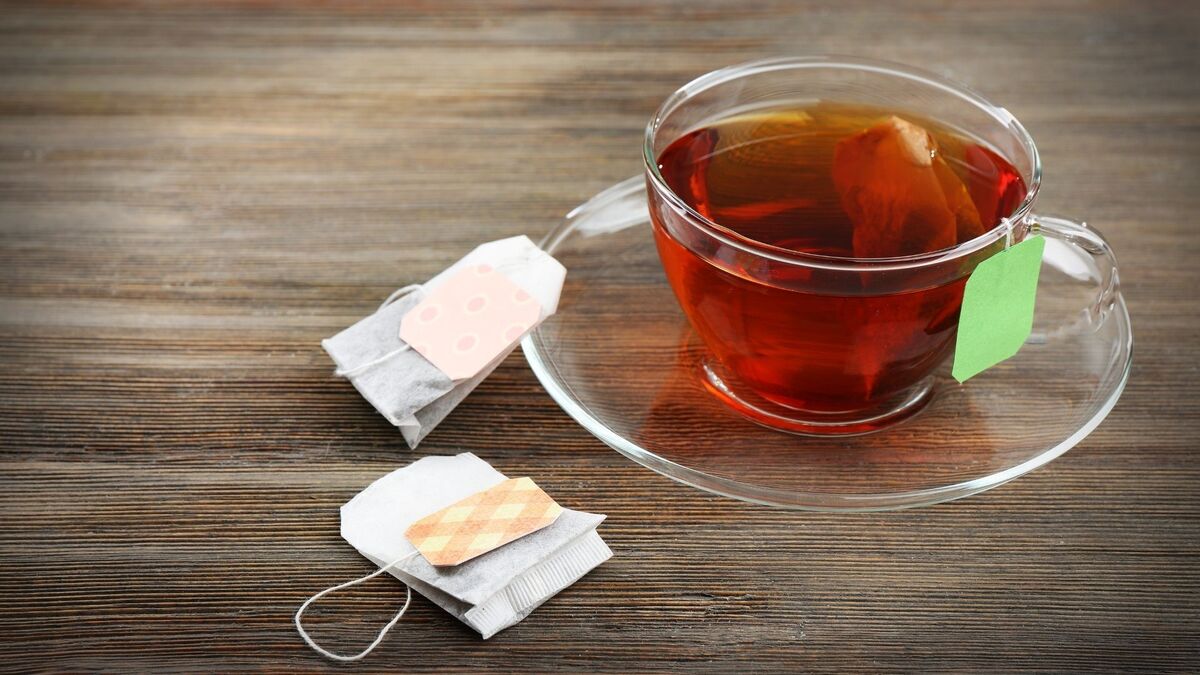Table of contents
General considerations about tea for urinary tract infection

Home remedies are a great resource for those who need to deal with their health problems immediately. In relation to urinary tract infection you will have as an option teas, such as corn hair, for example, or infusions such as parsley.
It is important to note that for them to have a positive effect on the treatment of urinary tract infection, these teas must offer antibacterial properties, anti-inflammatory and must be diuretic. So that you can eliminate bacteria through urine, relieve the symptoms of infection and speed up your recovery.
Although these home treatments do not have a degree of effectiveness as high as that of a medical treatment. However, these teas are used as an alternative treatment widely spread around the world. Follow this article and discover the benefits of teas for urinary tract infection!
Urinary tract infection, types, how it occurs and its causes

For people who drink little water or who usually hold their urine for a prolonged time, they become more susceptible to develop a urinary tract infection. For, this behavior will generate a series of complications in your urinary tract and can bring serious consequences to the body.
Follow the reading to understand what is urinary tract infection, its types and how it occurs in men, women and children, in order to prevent it!
What is urinary tract infection
This is a type of infection capable of affecting the organs of your urinary system, it can happen in 3 regions: the urethra, the bladder and the kidney. In men it can also occur in the prostate or testicles.
Urinary infection in most cases can be treated with a simple antibiotic, constant hydration, painkillers and anti-inflammatories. Only in more serious cases, when the infection has already spread to other organs that it becomes necessary the immediate hospitalization of the patient.
It is worth remembering that there are urinary tract diseases that resemble infections by having similar symptoms. However, these cases are usually not motivated by any microorganism.
Types of urinary tract infection
The urinary infection with greater recurrence is the one that occurs in the bladder, or cystitis, being also of easy treatment. Generally, the infectious microorganism passes through the urethra to the bladder and installs itself there. But, even so, there are more serious cases, when this infectious bacterium reaches the kidneys thus generating pyelonephritis.
The latter will require medical follow-up, as it is a more sensitive type of infection and has a high potential for dissemination. Meanwhile, there are also infections of the urethra (urethritis) that are more common in men, as due to the female urethra being shorter the bacteria tends to go straight to the bladder.
Urethritis can lead to a whitish urethral discharge, known as discharge. Urinary tract infection is the most common type of infection to occur, you must have had or will have it at least once in your life. If there is a monthly recurrence of this infection you need to have a clinical investigation.
How urinary infection occurs
It occurs through contact with an infectious organism such as bacteria, usually transmitted by sexual routes. In men it is common for the infection to occur in the urethra, while in women it can occur in the bladder. Through sex, or when there is a migration of bacteria from the gastrointestinal tract through the perineum to the bladder.
What are the most common causes of urinary tract infection
Usually, urinary infections are caused by bacteria, rarely by fungus. The latter has a higher chance to happen in diabetics or in people with a poor immune system. Viruses or parasites are extremely rare to happen.
In addition, among bacteria it is very common that it is caused by Escherichia coli, Enterococcus, Protus or Klebsiella. In this case, the bacteria would only be identifiable with medical examination.
Urinary infection in men
The most common urinary infection in men is urethritis, most often this type of infection occurs through sexual intercourse and are caused by microorganisms that cause gonorrhea or chlamydia. In this case, the most apparent symptoms are pain, itching and discharge.
There are other, rarer types of infections, such as bladder infections, which are generally caused when a man cannot completely eliminate urine from his bladder. At this point, it can happen due to prostate enlargement or tightness in the urethra.
Therefore, in relation to urinary infection in men it is important that he makes a consultation to have the correct diagnosis of his condition. For, the treatment may vary depending on the type of infection.
Urinary infection in women
Women in relation to urinary infection present a greater risk of contamination because they have a shorter urethra, besides having a urinary system very close to the anus, which could cause an infection by the proliferation of microorganisms in this region.
Other infections can also occur due to changes in vaginal pH, the incorrect use of vaginal cleaning products, fungal infections such as candidiasis or aging. In addition, it is necessary to pay attention to sexual activity, because sexual intercourse without a condom potentiates the introduction of bacteria in the vaginal region.
There are cases of urinary infection contaminating the gynecological organs and it can have serious consequences such as infertility. It can also happen that symptoms appear during pregnancy, in which case it is recommended immediate medical follow-up.
Urinary infection in children
Urinary infection in children is quite common, however it is necessary to make a medical diagnosis in these cases in order to identify if there is, or not, a problem in the formation of their urinary system.
In relation to babies, it is necessary to be aware of some symptoms such as difficulty in feeding, weight loss, irritability and, mainly, bad-smelling urine. Due to the fact that they cannot express themselves, it is recommended to make a medical consultation to identify the problem.
Different teas for urinary tract infection

The tea is a great complement for the treatment of this type of infection. They will be able to relieve the symptoms and will help to eliminate the invading microorganisms from your body. Learn what are the most recommended teas in cases of urinary tract infection in the sequence!
Garlic and Ginger Tea
In garlic tea and ginger are present substances such as allicin, gingerol, shogaol and zingerone. They have anti-inflammatory and antioxidant properties that can help you fight the symptoms of urinary tract infection and strengthen your immune system.
Before starting its preparation you will need to separate the following ingredients:
- 3 cloves of garlic;
- Ginger or ginger powder;
- 3 cups of water;
- Honey (optional).
After separating them, you should peel the garlic and put it in water to boil along with the ginger. After straining it, it will be ready to be consumed!
Hair of corn tea
Corn hair tea is well recognized for the treatment of urinary tract infection. Some studies have been made about the substances in this tea and polyphenols were found such as tannins, which have antimicrobial properties. Another important detail is its diuretic effect that aids in the elimination of bacteria.
To prepare this tea you will need only a handful of corn hair and a cup with boiling water. Then you should put the corn hair in the cup and wait for 10 minutes, after that period strain the tea and it is ready to drink.
Horsetail Tea
This is one of the most traditional diuretic teas, widely used in diets and also has practical applications in combating urinary tract infection. Its potential lies in the echisetonin, responsible for fighting fluid retention, helping weight loss and the elimination of substances through urine.
The ingredients that make up this ground are horsetail and water. The way it is prepared you must put boiling water in the cup along with the horsetail, then you must let it stand for 10 minutes. Then strain, let it warm and you can drink the liquid. It is recommended to take 3 times a day.
Dandelion tea
Dandelion tea is excellent for its diuretic action, helping to increase the amount of urine and allowing the elimination of bacteria causing urinary tract infection more quickly.
To prepare your tea you will need dandelion leaves and roots and boiling water. Then, put together in the cup the two ingredients and wait for 10 minutes. After that interval, you can strain the drink and take it for 2 to 3 times a day.
Bush leaf tea
Some studies point out that this plant has an essential oil in its leaves that when absorbed by the stomach, is then released by the kidneys in the form of urine, thus promoting the internal cleansing of your urinary system. The leaves of bucho soon serve as a diuretic and antimicrobial.
In this sense, they are great in fighting urinary tract infections. Prepare your tea with some dried leaves of bucho and put them in a cup with boiling water, letting it stand for 10 minutes. Then just strain it and your drink is ready, drink it at least 2 to 3 times a day.
Ursi (Ursine) Grape Leaf Tea
Ursi grape leaves have been used for years to relieve the symptoms of urinary tract infection. It has a powerful substance with antimicrobial action known as arbutin, being responsible for eliminating viruses, fungi and bacteria. Besides offering a diuretic action that will assist in the elimination of these microorganisms.
The ingredients needed for the tea are 3 grams of uva ursi leaves and 200 ml of cold water. Then you should put the leaves together with the water in a capped bottle and leave it to rest in a place without light for at least 14 hours.
After this time just strain it and it will be ready to be consumed. It is important to warn that its substance is very potent, and may lead to cases of poisoning. Therefore, it is recommended that you follow the recommended amounts, and avoid continuous intake of this tea.
Hydrastrast tea
Hydrastin is a plant that has substances such as hydrastin and berberine, responsible for antimicrobial and anti-inflammatory action. In addition to having an effective detoxification potential against bacteria that cause urinary tract infection.
The ingredients required to prepare hydrastrast tea are 1 teaspoon of hydrast powder and 250 ml of boiling water. Then you should mix them in a cup and leave it to stand for 15 minutes. After the liquid becomes warmer, you will strain it and consume it at least 2 times a day.
Horseradish tea
Horseradish tea is known for its antimicrobial, anti-inflammatory and antiseptic capabilities, which are able to relieve burning when urinating, as well as aid in the elimination of bacteria lodged in the urinary tract.
To prepare the tea you will need dried horseradish leaves and put to see along with a cup of water. Then you should let the tea warm up and then strain it. After this process it will be ready to consume!
Goldenrod tea
Goldenrod is also advisable as a home remedy to combat urinary tract infection. Since it has diuretic and anti-inflammatory properties, thus reducing the symptoms of infection and helping in the elimination of microorganisms.
To prepare the golden rod tea will need the dried leaves of the plant and a cup of boiling water. Then just add in the cup and wait to rest for 10 minutes. Then just strain and drink!
Infusion of parsley
The infusion of parsley will help you treat urinary tract infection due to its diuretic properties, and it also helps in the regulation of your urinary system. Which allows better efficiency in the elimination of bacteria.
To prepare your infusion you just need parsley and 1 cup of boiling water. Then you should cut the parsley and put it in the cup with water, leaving it to infuse for 7 minutes. Then just strain it and drink it at least 3 times a day.
Other home and natural remedies for urinary tract infection

In addition to teas there are other natural home remedies that can help in the treatment of urinary tract infection. For example, pomegranate juice, cranberry juice and tincture of capsicum, all of them offer properties capable of relieving the symptoms of infection. Know their characteristics and how to prepare them below!
Pomegranate Juice
Pomegranate is rich in triterpenes, steroids, tannins and in vitamin C, these substances help in increasing acidity in urine which would serve as an antibacterial property. Its juice is very effective for infection cases involving microorganisms such as Escherichia coli and Klebsiella pneumoniae.
The Ingredients needed for the juice are:
- 2 to 3 very ripe pomegranates;
- 1 liter of water.
You should prepare the pomegranate juice by cutting them in half and removing their seeds. After that just put the seeds to beat with water in a blender, strain and drink.
Cranberry Juice
Cranberry can also be called cranberry or wild cranberry, it has substances such as flavonoids, terpenoids, catechins, proanthocyanidins, citric and malic acids. They have the ability to prevent the adherence of bacteria in the urinary system, helping in the elimination of microorganisms.
The Ingredients you will need to have on hand to prepare the cranberry juice are:
- 2 to 3 tablespoons of dehydrated cranberry;
- 1 liter of water.
To prepare the juice is very simple, just beat the ingredients in a blender, strain and drink 1 glass 2 to 3 times a day.
Capuchin Tincture
The tincture of capsicum is able to reduce the proliferation of bacteria causing urinary tract infection due to its antibiotic properties, in addition to offering an effective diuretic and antiseptic action in fighting infection.
Put 20 to 50 drops of the tincture of capuchin and half a cup of warm water. Then just mix the ingredients well and take. The indication is to take it for at least 3 to 5 times a day.
Symptoms, common questions and habits for urinary tract health

The urinary infection will reach everyone at least once in life. Despite being a recurrent problem in humanity, it awakens a lot of doubts about their symptoms and prevention. Keep reading and get these doubts right now!
Symptoms of urinary tract infection
The symptoms can be diverse, because it will depend directly on the region where the infection occurred. Below are the symptoms that can be presented by each type of infection.
- Symptoms of Bladder Infection (cystitis)
The most frequent symptoms in cases of cystitis are pain, burning and discomfort when urinating. Besides the need to urinate several times, although it comes out in small amounts. Other possible symptoms are urinary urgency, presence with cloudy aspect and bad smell.
- Symptoms of kidney infection (pyelonephritis)
Kidney infections are more serious because the risk of proliferation to other organs is higher. Therefore, it is necessary to take a longer treatment, the symptoms of those who have this type of urinary infection are fever, nausea, vomiting, pain in the lumbar region and a constant discomfort.
- Symptoms of prostate infection (prostatitis)
As for prostate infection, it is common to feel fever, pain when urinating, difficulty when urinating and pain between the scrotum and the anus.
- Symptoms of infection in the urethra (urethritis)
Infection in the urethra can cause burning when urinating and a whitish discharge from the urethra.
However, regardless of the type of urinary infection, if you feel muscle pain, nausea and vomiting are already considered serious indications. Which means that the infection is already in an advanced stage and you need a hospital admission to be treated immediately.
Another point is the duration of symptoms, they usually last 2 to 3 days after you start a treatment. The only exception is for prostate and kidney infections that require longer observation time.
In the elderly, this disease may not present symptoms, and is then called asymptomatic urinary infection. Therefore, there is the need for a medical follow-up to verify the level of evolution of the infection.
Habits for good urinary tract health
There are some procedures in our daily life that if applied to your routine will greatly reduce the risk of contracting a urinary tract infection, such as drinking plenty of fluids or beverages like green tea that has a diuretic effect that will contribute to the maintenance of your urinary system.
In addition to these basic tips follows a list of habits:
- Never hold urine;
- Avoid bathing in tubs;
- Hygienize the genitals before and after sex, always remembering to urinate after the act;
- Avoid using intimate deodorants;
- It is advisable for women to use a cotton pad.
There is also some specific advice for women regarding cleaning up after urination, which should always be done from front to back. They should avoid using paper or wet wipes that have perfume, as they can alter the vaginal pH.
Is urinary infection communicable?
In most cases of urinary infections they are contracted from other factors than sex. However, in a sexual relationship it is possible to transmit the bacteria responsible for causing the infection, usually generating infections in the urethra or bladder.
What are the possible treatments for urinary tract infection?
The most common treatment is the use of antibiotics that must be indicated by your doctor. Teas and home remedies would be useful as they would potentiate the effects of the medicines from their diuretic and anti-inflammatory actions.
So if a conventional treatment lasts an average of 7 to 10 days, drinking the tea regularly during this treatment could shorten these days and help you heal faster from the urinary tract infection.
What care is needed when consuming tea for urinary tract infection?

Regardless of the product you are using as medicine to treat your urinary tract infection, even if it is the teas or a natural remedy, you need to follow the guidelines of a doctor. For, the dosages used need to be adapted to your physiological characteristics such as weight, age and height.
What's more, pregnant women or women who are still breastfeeding their children need to avoid using any kind of tea without a prior indication from their obstetrician. Since teas have properties that could overload your kidneys and endanger your life and that of your baby.
Therefore, the most effective and safest way is to consult a doctor. Only by going through a health professional will you have clear treatment recommendations for your infection problem. So you do not further compromise your body and ensure the success of your treatment.

